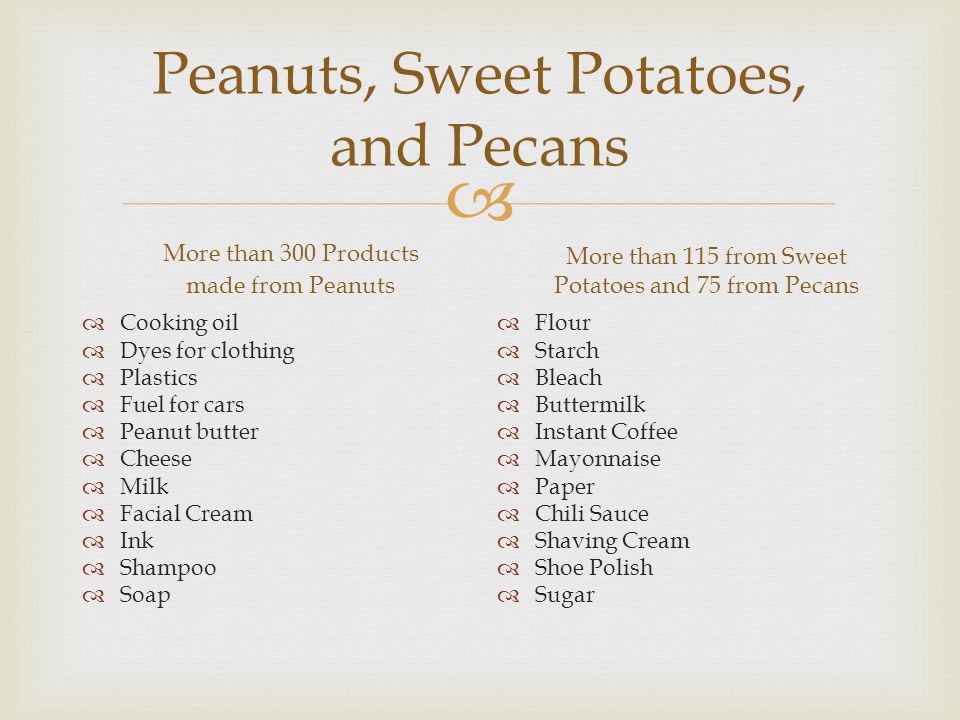George Washington Carver
(1860s– January 5, 1943)

Carver developed techniques to improve soils depleted by repeated plantings of cotton. He urged farmers to restore nitrogen to their soils by practicing systematic crop rotation: alternating cotton crops with plantings of sweet potatoes or legumes (such as peanuts, soybeans and cowpeas).
These crops both restored nitrogen to the soil and were good for human consumption. Following the crop rotation practice resulted in improved cotton yields and gave farmers alternative cash crops.
In 1896, Carver earned his Master of Agriculture degree and immediately received several offers, the most attractive of which came from Booker T. Washington (whose last name George would later add to his own) of Tuskegee Institute (now Tuskegee University) in Alabama.

In 1916, Carver was made a member of the Royal Society of Arts in England, one of only a handful of Americans at that time to receive this honor. Carver’s promotion of peanuts gained him the most notice.
In 1921, peanut farmers and industry representatives planned to appear at Congressional hearings to ask for a tariff.
Based on the quality of Carver’s presentation at their convention, they asked the African-American professor to testify on the tariff issue before the Ways and Means Committee of the United States House of Representatives.
Due to segregation, it was highly unusual for an African American to appear as an expert witness at Congress representing European-American industry and farmers. Carver talked about the importance of the peanut and its uses for American agriculture.
The Fordney-McCumber Tariff of 1922 was passed including one on imported peanuts. Carver’s testifying to Congress made him widely known as a public figure.
In 1932, the writer James Saxon Childers wrote that Carver and his peanut products were almost solely responsible for the rise in U.S. peanut production after the boll weevil devastated the American cotton crop beginning about 1892.